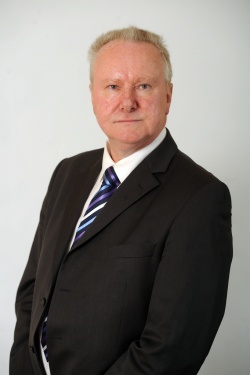When will the alcohol pricing battle end?
The danger posed to well being by alcohol consumption has been brought into sharp focus by head on clashes between health professionals and the drinks industry, with Scotland’s Government aiming to implement a minimum unit price (MUP) for alcohol.
Report: Mark Nicholls

The drinks industry – particularly Scotland’s whisky industry – opposes such a move.
Supporters of the legislation maintain there is strong evidence regarding the link between alcohol price, income, affordability and consumption: as alcohol becomes more affordable, consumption increases and with increased consumption comes increased harm to health.
However, whilst there has been action and legislation against smoking in the UK and across Europe – with plain packaging, a ban on smoking in public places and restrictions to shop displays to try to reduce the harm tobacco causes – there has not been such similar action against alcohol, which is why the MUP plans have triggered such opposition within the drinks sector.
Figures show that alcohol is now 45% more affordable than in 1980 and consumption increased by 10% in Scotland between 1994 and 2011 and is 20% higher than in England and Wales. The negative impact of this, in terms of a burden on health services, police and the economy is put at £3.56 billion each year, or £900 for every adult in Scotland.
In 2012 this resulted in a call for a policy to set a minimum price for a unit of alcohol – e.g. 50 pence per unit – below which it cannot be sold. However, the flagship legislation has been delayed after the Scotch Whisky Association (SWA) with other trade bodies for international alcohol producers – The European Spirits Association (Spirits Europe) and Comité Européen des Entreprises Vins (CEEV) - took their legal challenge to the European Court of Justice in Luxembourg, arguing that the legislation breaches European law.
The finer points of the debate were discussed in Brussels on 5 September. During the event, under the banner Scotland the Brave! - Alcohol Policy in Scotland, speakers outlined why Scotland introduced this measure and heard opinions of health officials and trade experts, plus an update on the latest position in the battle to implement the MUP.
Speakers included Donald Henderson, Head of Public Health, Scottish Government; Dr Peter Rice, Chair, SHAAP (Scottish Health Action on Alcohol Problems); Paul Bartlett, Group Marketing Director, C & C (Producers of Tennents Lager) and Paul Waterson, Chief Executive, Scottish Licensed Trade Association.
Meanwhile, among the pubic in Scotland, people are slightly more in favour of introducing MUP than against. The Scottish Social Attitudes Survey 2013 questioned about 1,500 people and found 41% in favour of the Scottish government policy to charge a minimum unit price for alcohol. The research found 35% were against the policy and 22% had no strong view either way.
While the Scottish Government says MUP is needed to tackle Scotland’s problems with alcohol misuse, the country’s Health Secretary Alex Neil welcomed the decision being considered by the highest authority on EU law. ‘The evidence shows that minimum unit pricing is an effective way to tackle alcohol-related harm, because it targets heavy drinkers in particular, as they tend to drink the cheap, high-strength alcohol that will be most affected by the policy.’
SWA chief executive David Frost countered by stating: ‘We believe MUP would be ineffective in tackling alcohol misuse and would damage the Scotch whisky industry in the UK and overseas.’
The clash between government, health professionals and the drinks industry is proving a drawn-out battle. However, with Scotland being one of the first countries to introduce the measure its progress is already being carefully monitored across Europe.
MUP cannot come into force until the legal process is complete. The ECJ will now await written submissions from EU member states, trade bodies and the Scottish government, as well as the European Commission. This is expected to happen towards the end of 2014 or early in 2015.
17.11.2014


